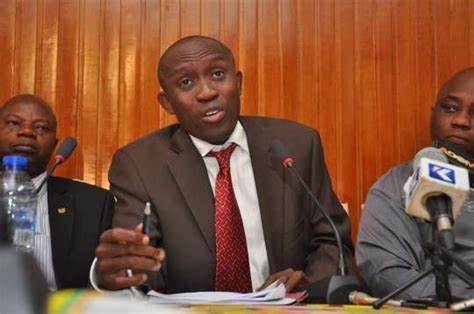In a recent interview with Citi FM, Dr. Franklin Asiedu-Bekoe, the Director of Public Health at the Ghana Health Service (GHS), assured Ghanaians of the country’s readiness to manage any potential Mpox outbreak. His remarks were prompted by concerns regarding the nation’s preparedness for outbreaks, which have resurfaced in various parts of the world. During the discussion, Dr. Asiedu-Bekoe highlighted the key measures put in place by the GHS to maintain effective surveillance and response systems in the face of potential health crises. He noted that a robust and sensitive surveillance framework is integral to identifying and managing suspected cases, enabling the health services to respond swiftly should an outbreak occur.
One of the significant points made by Dr. Asiedu-Bekoe is Ghana’s unique capability to confirm Mpox cases, a facility that only a fraction—specifically, 30%—of African countries possess. With two well-equipped laboratories, Noguchi Memorial Institute for Medical Research and another reference lab, Ghana stands out in its ability to detect and confirm cases promptly. This infrastructure is crucial for timely interventions and reinforces the country’s overall health security. Furthermore, he pointed out that the existence of treatment facilities for severe cases is a significant advantage. These facilities have largely been established as a result of experiences gained during the COVID-19 pandemic, ensuring that the healthcare system has learned and adapted to better handle future outbreaks, including Mpox.
Despite the strengths in Ghana’s health system, Dr. Asiedu-Bekoe acknowledged that continuous improvement is necessary. He emphasized the importance of ongoing training for health workers to enhance their preparedness and response capabilities. This includes equipping healthcare professionals with adequate personal protective equipment (PPE) to safeguard their health while treating suspected or confirmed cases. Such training is not merely a reactive measure but a proactive strategy intended to build resilience within the health workforce, mitigating the risks of infection as they engage with potentially infected individuals.
Moreover, Dr. Asiedu-Bekoe outlined the need for increased public awareness about Mpox. Raising awareness among the general populace can facilitate early detection of symptoms and encourage individuals to seek care without delay. This education campaign must be multifaceted, addressing how Mpox spreads, its symptoms, prevention methods, and the importance of reporting suspected cases to health authorities. By fostering a well-informed public, Ghana can enhance its community involvement in controlling any outbreak swiftly and efficiently, working in synergy with established health systems.
In conclusion, Dr. Asiedu-Bekoe’s comments reflect a cautious yet optimistic outlook on Ghana’s preparedness for potential Mpox outbreaks. The foundation laid by previous health crises, particularly the COVID-19 pandemic, has equipped the country with both operational experience and infrastructural capabilities vital for managing emerging infectious diseases. While he recognized the advancements made, he underscored the ongoing work needed in training, resource allocation, and public education. The proactive measures initiated by the GHS indicate a commitment to sustaining public healthstandards and enhancing the nation’s ability to respond to infectious disease threats as they arise.














